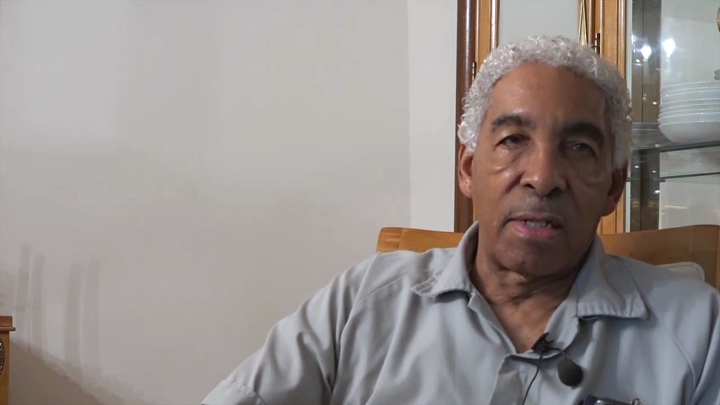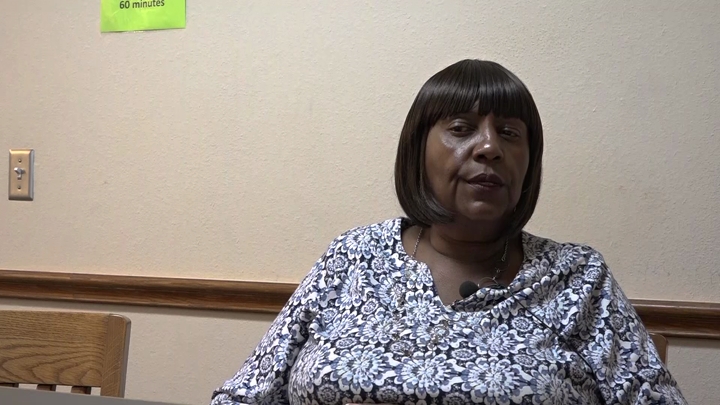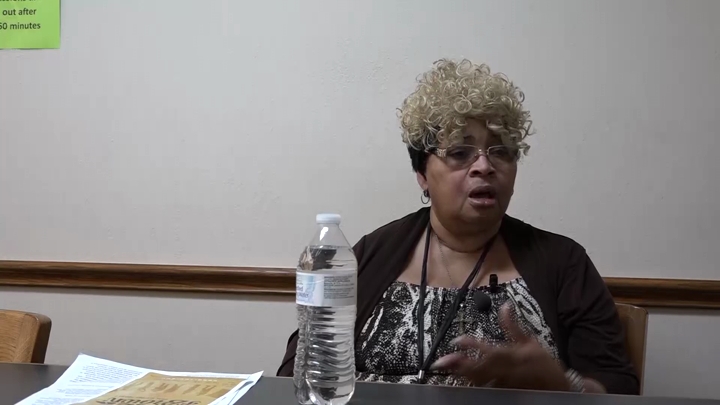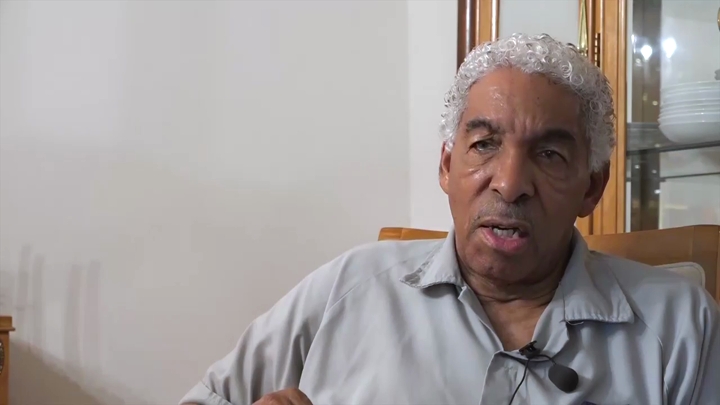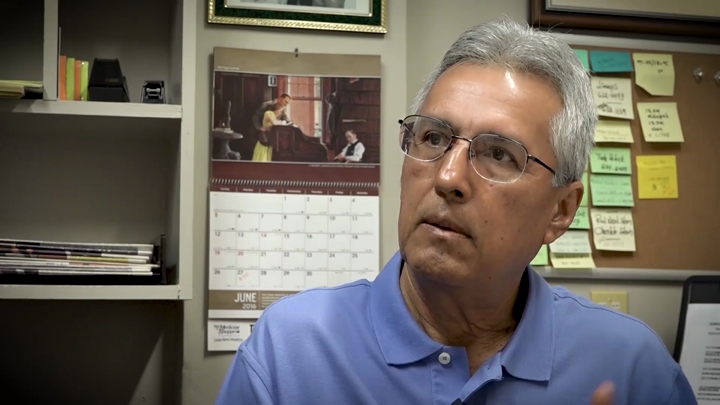Cross / Working as a Bus Driver, Unequal Resources
sign up or sign in to add/edit transcript
Cross: We used to put them out at their houses and some of them would sneak off. Boy and girl, you’d put them off and you think they’re going in. They didn’t go in. So, then we said somebody has to wave out the door, you know, say I know they’re there. So, then we started doing that. We didn’t pull off until somebody came to the door to let us know that I see this student because they had all kinds of tricks going on. So, we did that, but we always took every student home to their door and then we would blow a horn, their parents would come out and wave and then we’d drive off. We did that seven years I was driving busses. Then, something else, we never lost a student. We never had a wreck of any kind. The farthest we had driven is we went to Wichita Falls. We put two men on each bus and one would drive an hour and another one would drive an hour and we did that until we got to Wichita Falls. Like I said, we never lost anybody. We never wrecked a bus all that time. Never had a wreck. Never lost a student. So, I was proud of that. That we were safe all the time. Interviewer: Was pay equal after integration between the white administrators and teachers and the African-American teachers and administrators? Cross: I think it was after integration, but I don’t know about before. It probably was not, you know, just knowing what I know, but it’s something else. I tell you something else that it was funny in a way, but—when I was teaching, I got all my typewriters from Lufkin High School and I never got a new typewriter. There was a man named Dexter Saddlewhite. He had a typewriter company and he told me, he said, “You know the best way to get some new typewriters?” I said, “What?” He said, “Just have me to come service each typewriter. They’re breaking down and all this stuff and let’s see what happens.” So, I said, “Okay, I’ll do that.” So, W.C. Royal had a typewriter company and Dexter Saddlewhite, he had Royal Typewriters and Royal had Underwood. Anyway, I just called him, and I’d say, “You need to come pick up a couple of typewriters. They’re not working,” and he’d bring two to replace them and he’d service the typewriters. So, the superintendent called me in and he said, “Your budget, your repair budget is getting pretty high,” and I said, “Well, you know, these typewriters are worn out when we get them because we’re getting them from the high school so I’m doing the best I can to keep them all working. So that’s the reason I’m having them repaired because that’s how we keep them working. I’ve got thirty-two students. I got to have thirty-two typewriters. So, I did that a year. I mean, I ran up a repair bill. I came back from home, for the summer, and went down to check the classroom and I had thirty-two boxes in my classroom. Had thirty-two boxes and I looked in those boxes and I had new typewriters. First time in the history of the school that they’d had new typewriters.
| Interview | Interview with Herbert Cross |
| Subjects | Work › Working Conditions |
| Education › Secondary Education | |
| Education › Education and Integration | |
| Education › Quality of Instruction › Textbooks | |
| Tags | Lufkin High School, Lufkin, TX |
| Lufkin ISD | |
| Unequal Pay | |
| Saddlewhite, Dexter | |
| sign up or sign in to add/edit tags | |
| Interview date | 2016-06-20 |
| Interview source | CRBB Summer 2016 |
| Interviewees | Cross, Herbert |
| Interviewers | May, Meredith |
| Locations | Lufkin, TX |
| Duration | 00:04:15 |
| Citation | "Working as a Bus Driver, Unequal Resources," from Herbert Cross oral history interview with Meredith May, June 20, 2016, Lufkin, TX, Civil Rights in Black and Brown Interview Database, https://crbb.tcu.edu/clips/2407/new-typewriters, accessed March 04, 2026 |


